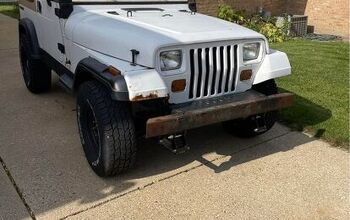Can It Be? Mazda's Long-awaited CX-5 Diesel Gets California Green Light

We’ve been talking about the Mazda CX-5 diesel for a long time, and with good reason. It’s been a long time coming. Originally promised for a U.S. introduction in the second half of 2017, a quick scan of of Mazda’s consumer website reveals no mention of a popular compact crossover with a 2.2-liter Skyactiv-D four-cylinder under the hood.
This could soon change. The California Air Resources Board has certified the engine for sale in that ecologically sensitive state, making a similar thumbs up from the Environmental Protection Agency a near certainty.
The news, which should provide much-needed hope and reassurance for lovers of Kodo-bodied diesels, comes by way of Green Car Reports. A reader provided a copy of the engine’s April 13th certification document, which gives Mazda the ability to start selling it in the Golden State.
More likely, though, the automaker wants a nationwide launch, in which case it first needs to get the green light from the EPA. That certification process has reportedly not yet begun, and Mazda isn’t able to provide an educated guess on when we’ll finally get our hands on what promises to be a very fuel efficient crossover. As an automaker with no hybrid or electric vehicles, the diesel’s promised “hybrid-like” fuel economy would go a long way towards satisfying environmental regulators.
So far, there’s no EPA fuel economy rating for the CX-5 diesel.
Mazda, as you know, loves the internal combustion engine. The brand’s next step in meeting corporate average fuel economy targets involves the variable compression Skyactiv-X engine, appears next year in the new Mazda 3.
Mazda seemed pretty bullish on the diesel’s U.S. future (at least, they did a year ago), speculating that 10 percent of CX-5 sales could come from the Skyactiv-D model. A tall order, for sure. The CX-5 is by far the brand’s best-selling U.S. model, moving some 16,138 units in March. That tally represents a 90.5 percent year-over-year sales increase, and volume over the first three months of 2018 show a 75.7 percent uptick over the same period last year.
Suffice it to say, the CX-5 is Mazda’s meal ticket. It remains to be seen whether the addition of an oil burner makes the model even more appetizing to buyers.
[Image: Mazda]

More by Steph Willems
Latest Car Reviews
Read moreLatest Product Reviews
Read moreRecent Comments
- Jrhurren Worked in Detroit 18 years, live 20 minutes away. Ren Cen is a gem, but a very terrible design inside. I’m surprised GM stuck it out as long as they did there.
- Carson D I thought that this was going to be a comparison of BFGoodrich's different truck tires.
- Tassos Jong-iL North Korea is saving pokemon cards and amibos to buy GM in 10 years, we hope.
- Formula m Same as Ford, withholding billions in development because they want to rearrange the furniture.
- EV-Guy I would care more about the Detroit downtown core. Who else would possibly be able to occupy this space? GM bought this complex - correct? If they can't fill it, how do they find tenants that can? Is the plan to just tear it down and sell to developers?


































Comments
Join the conversation
Why on earth do Americans want diesels? In the UK they were foisted on drivers by a non-driving Chancellor of the Exchequer for political reasons. Although they get slightly better gas mileage they are no use for lots of short runs from cold which tends to clog up the super complicated emissions equipment, which has a nasty habit of failing completely after a few years. They have been a disaster. Now the UK is moving away from them - many cities will ban all but the very latest models - so as a final kick in the teeth to consumers, used values are now plunging.
Thank goodness. I'm sure the 43 people who were waiting to buy a diesel powered compact CUV from a niche manufacturer will be so relieved.